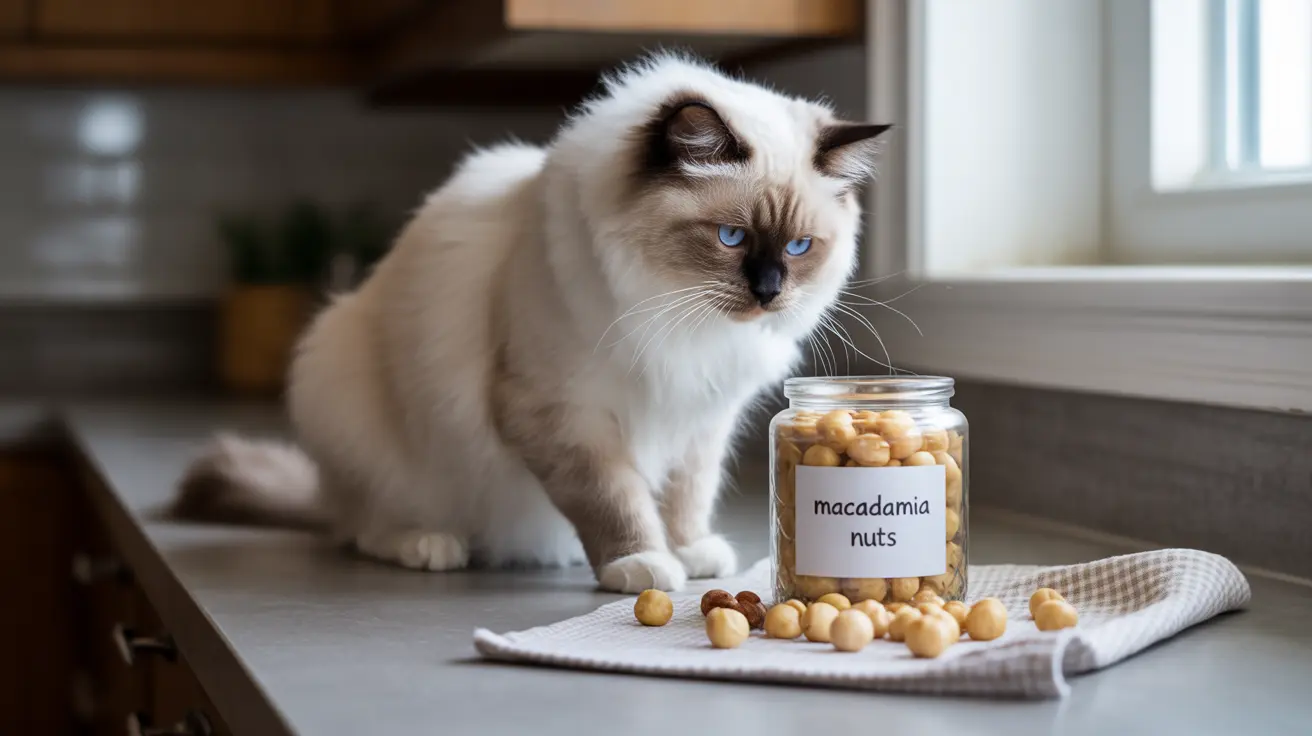As pet owners become more conscious about sharing human foods with their feline companions, questions about nuts, particularly macadamia nuts, have become increasingly common. While these creamy, rich nuts are a delicious treat for humans, their safety profile for cats requires careful consideration.
Understanding the potential risks and complications associated with cats consuming macadamia nuts is crucial for responsible pet ownership. This comprehensive guide will explore the safety concerns, potential health impacts, and what you should do if your cat accidentally ingests these nuts.
The Dangers of Macadamia Nuts for Cats
While macadamia nut toxicity is well-documented in dogs, the specific effects on cats aren't as extensively studied. However, veterinary experts advise against feeding these nuts to cats for several important reasons:
Potential Toxic Effects
Though cats may not experience the same severe toxic reactions as dogs, macadamia nuts can still cause significant health issues. The compounds in these nuts may lead to various adverse reactions, including digestive disturbances and potential neurological symptoms.
High Fat Content Risks
Macadamia nuts contain extremely high levels of fat, which can trigger serious health conditions in cats. The most concerning of these is pancreatitis, an inflammation of the pancreas that can be life-threatening if left untreated.
Recognizing Warning Signs and Symptoms
If your cat has consumed macadamia nuts, watch for these potential symptoms:
- Lethargy and weakness
- Vomiting and digestive upset
- Difficulty walking or lack of coordination
- Elevated body temperature
- Tremors or muscle shakiness
- Abdominal pain or discomfort
Immediate Actions and Treatment
If you suspect your cat has eaten macadamia nuts, taking prompt action is crucial:
- Contact your veterinarian immediately
- Monitor your cat's symptoms closely
- Do not induce vomiting unless specifically instructed by a professional
- Keep any remaining nuts for identification purposes
Prevention and Safe Alternatives
The best approach to macadamia nut safety is prevention. Store nuts securely out of your cat's reach, and consider these safer treat alternatives:
- Commercial cat treats specifically formulated for felines
- Small pieces of cooked, plain chicken or fish
- Specially designed cat grass for grazing
- Veterinarian-approved dental treats
Frequently Asked Questions
Can cats safely eat macadamia nuts or are they toxic to them?
Macadamia nuts are not recommended for cats. While their toxicity level isn't as well-documented as it is in dogs, these nuts can cause serious health issues due to their high fat content and potential toxic properties.
What symptoms should I watch for if my cat accidentally eats macadamia nuts?
Watch for signs including lethargy, vomiting, difficulty walking, tremors, elevated body temperature, and abdominal discomfort. Any of these symptoms warrant immediate veterinary attention.
How should I respond if I suspect my cat has ingested macadamia nuts?
Contact your veterinarian immediately for guidance. Monitor your cat closely and document any symptoms. Don't attempt home treatments without professional medical advice.
Why are macadamia nuts dangerous for cats compared to other nuts?
Macadamia nuts pose specific risks due to their extremely high fat content, which can cause pancreatitis, and potential toxic compounds that may affect your cat's nervous system and digestive tract.
Are there safe and healthy treat alternatives for cats instead of macadamia nuts?
Yes, there are many safe alternatives including commercial cat treats, small pieces of cooked lean meat, and veterinarian-approved dental treats. Always choose treats specifically formulated for feline consumption.
Conclusion
While macadamia nuts are a tasty treat for humans, they should never be fed to cats. The potential risks and health complications far outweigh any perceived benefits. Keep your feline friend safe by sticking to veterinarian-approved treats and foods specifically designed for cats.






